Research Priorities to Support Effective Manta and Devil Ray Conservation
September 2018
Joshua D. Stewart, Fabrice R. A. Jaine, Amelia J. Armstrong, Asia O. Armstrong, Michael B. Bennett, Katherine B. Burgess, Lydie I. E. Couturier, Donald A. Croll, Melissa R. Cronin, Mark H. Deakos, Christine L. Dudgeon, Daniel Fernando, Niv Froman, Elitza S. Germanov, Martin A. Hall, Silvia Hinojosa-Alvarez, Jane E. Hosegood, Tom Kashiwagi, Betty J. L. Laglbauer, Nerea Lezama-Ochoa, Andrea D. Marshall, Frazer McGregor, Giuseppe Notarbartolo di Sciara, Marta D. Palacios, Lauren R. Peel, Anthony J. Richardson, Robert D. Rubin, Kathy A. Townsend, Stephanie K. Venables & Guy M. W. Stevens
Keywords: Manta • Mobula • Devil Ray • Elasmobranch • Management
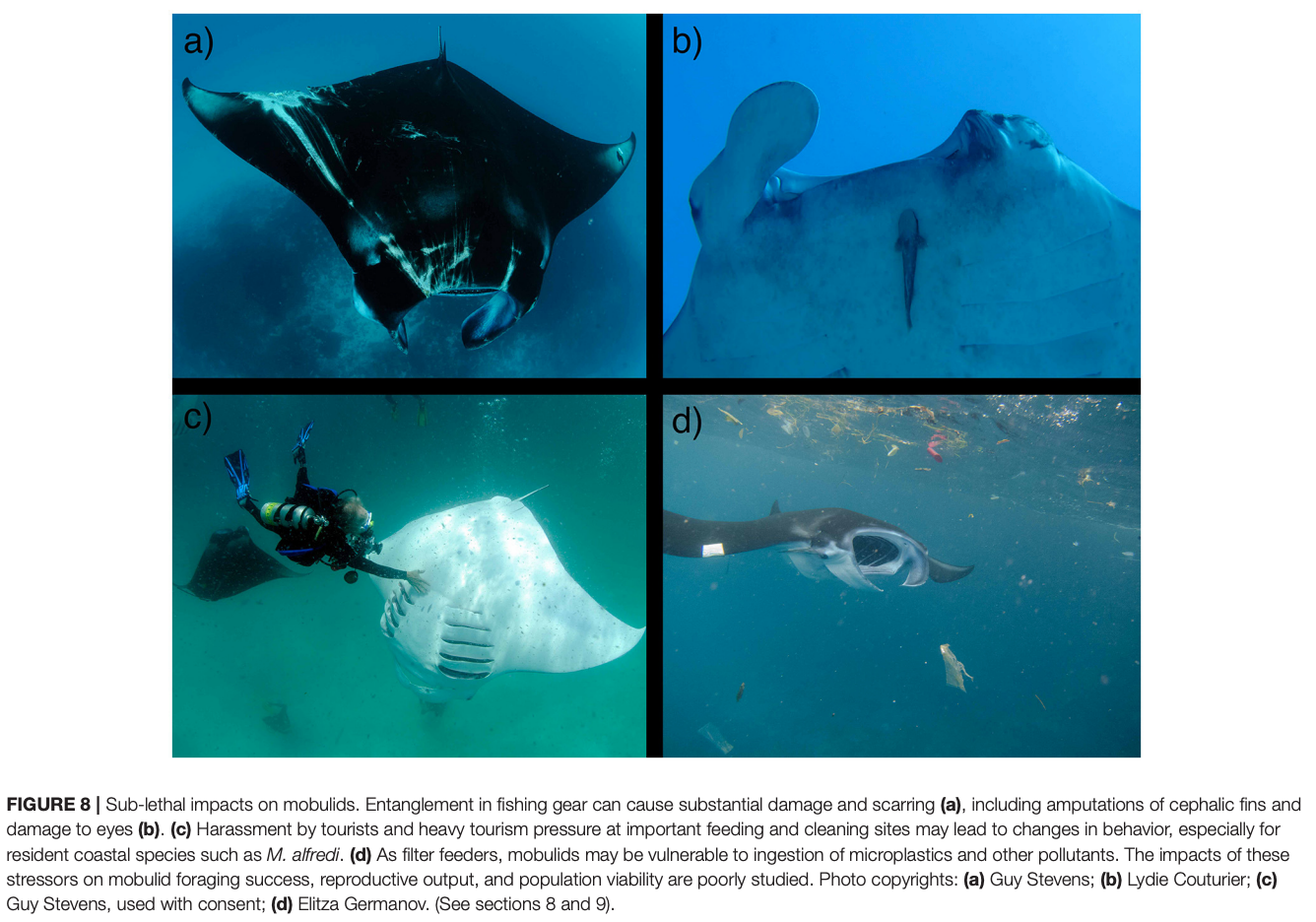
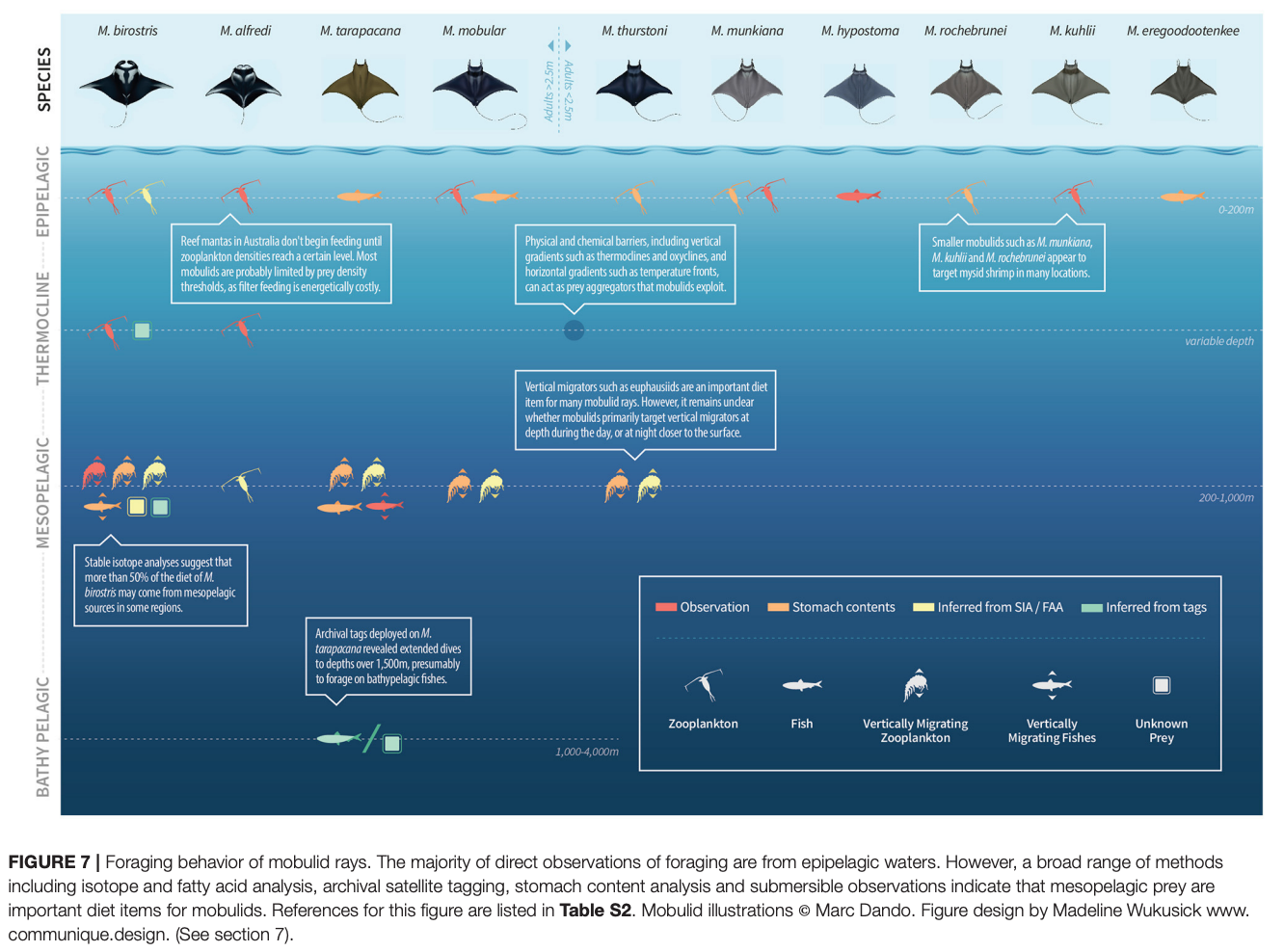
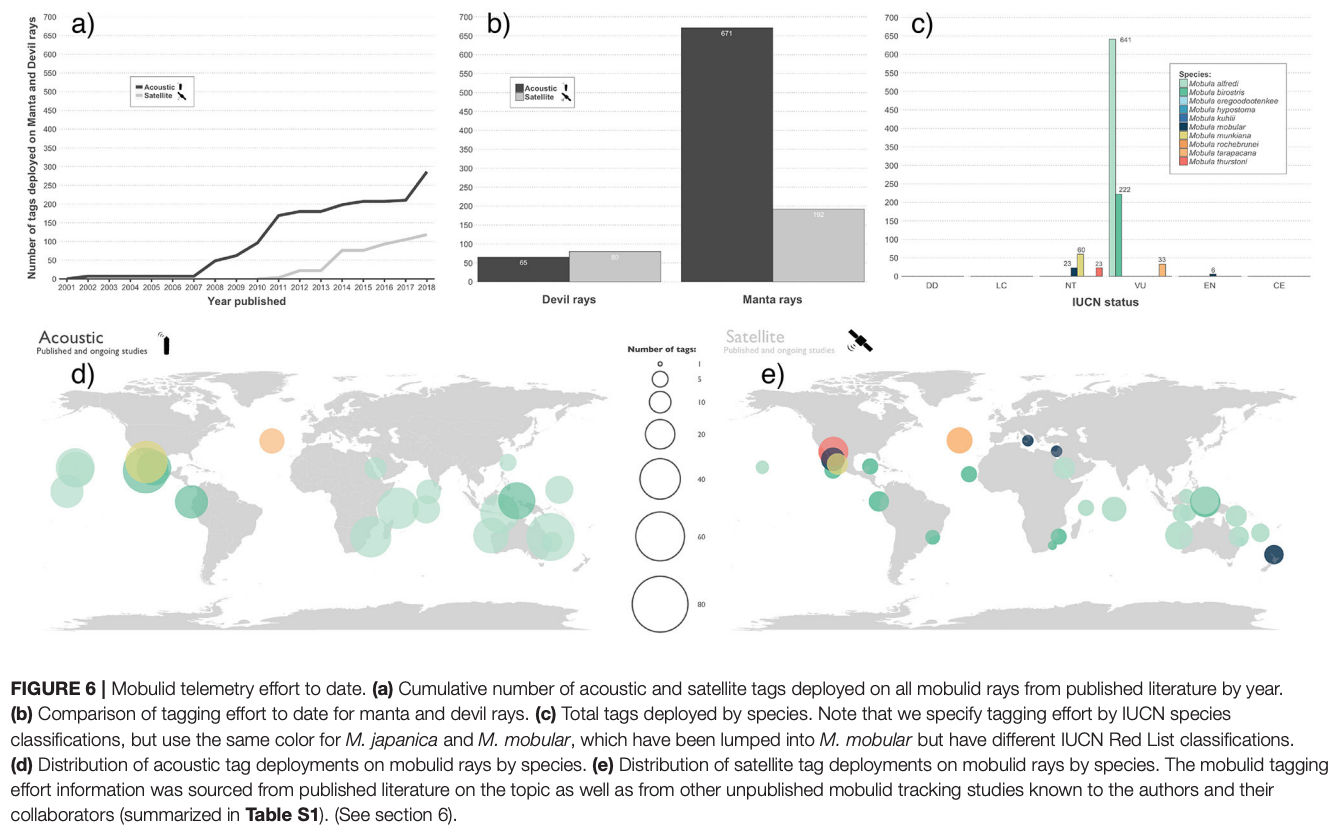
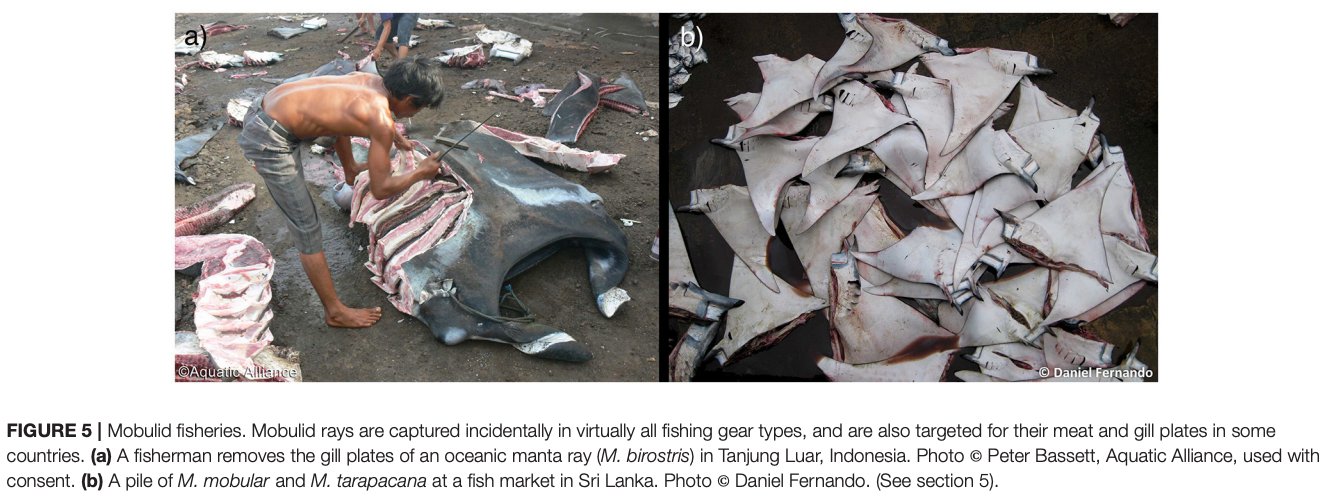
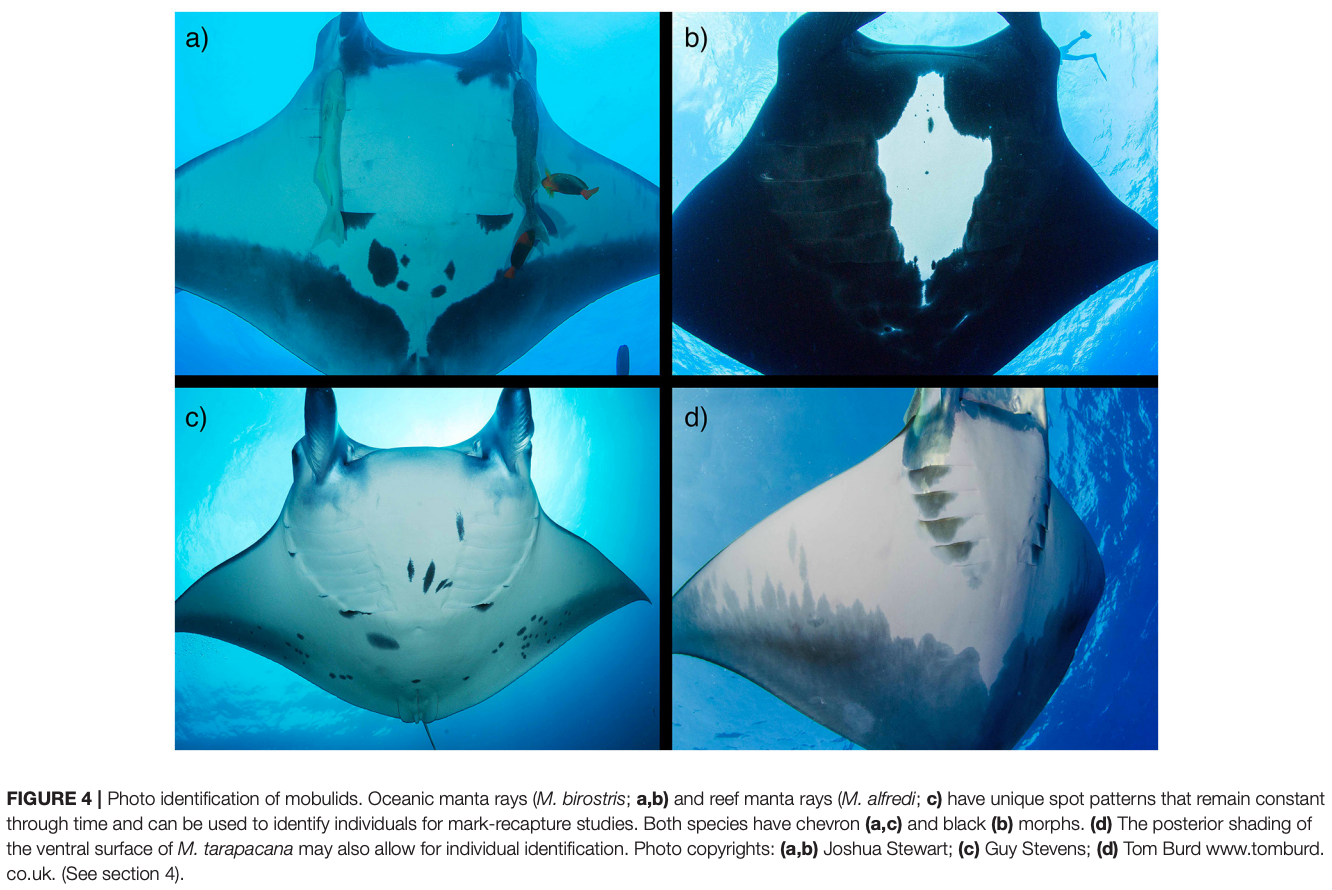
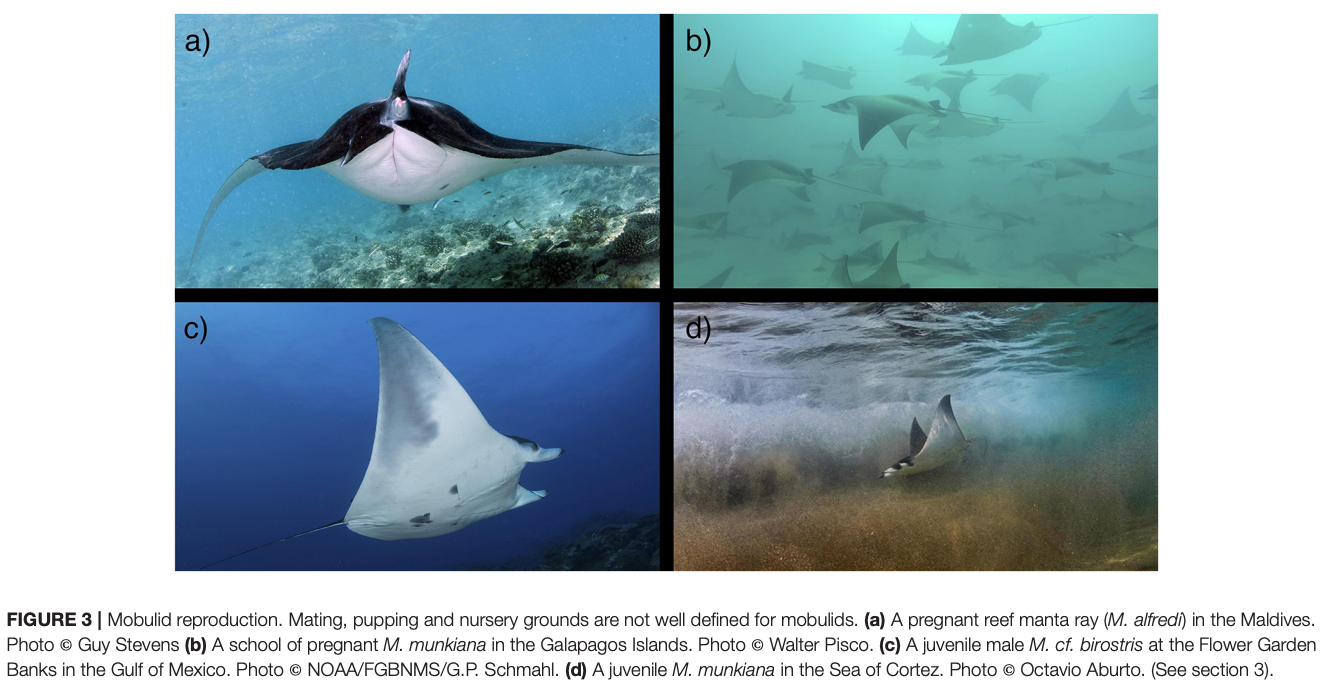
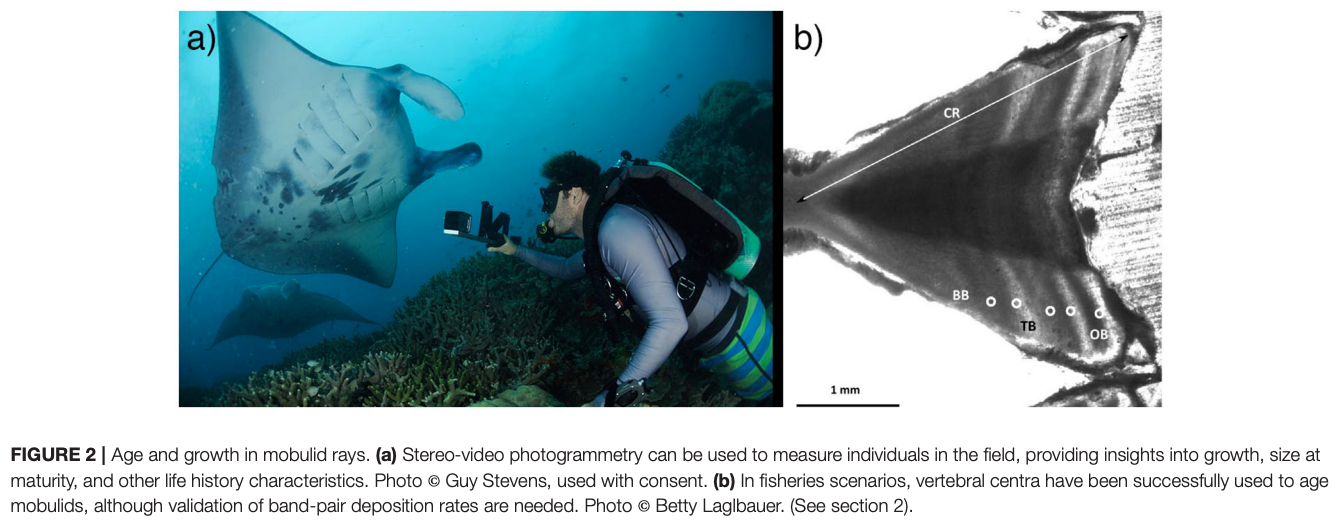
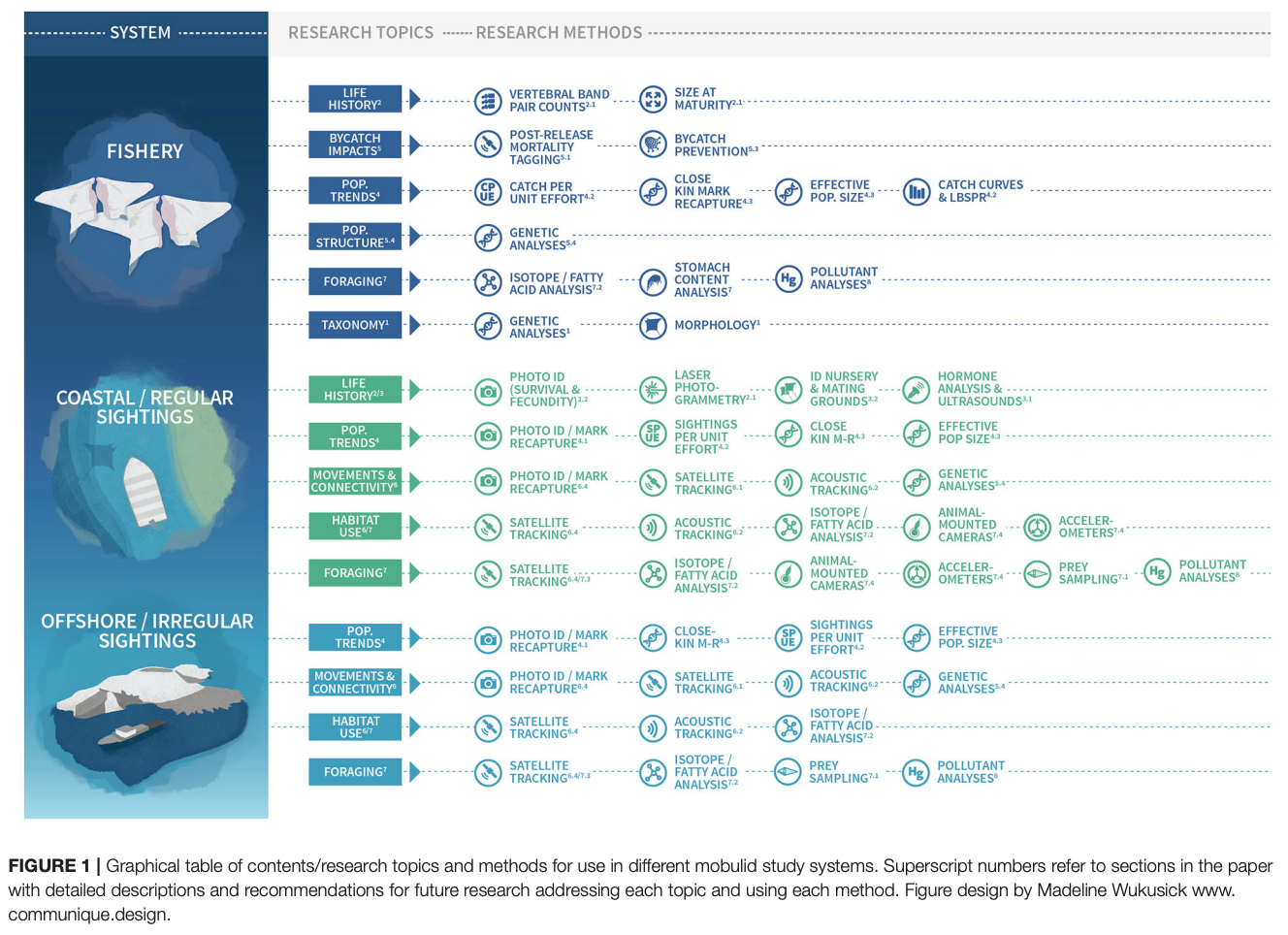
Summary: Manta and devil rays are filter-feeding elasmobranchs found in tropical waters. Research on these species has increased due to concerns about their populations and exploitation. However, there are still major gaps in knowledge hindering effective management and conservation. Experts have identified key areas for research, hoping to stimulate future studies and improve understanding of these vulnerable species.
Abstract
“Manta and devil rays are filter-feeding elasmobranchs that are found circumglobally in tropical and subtropical waters. Although relatively understudied for most of the Twentieth century, public awareness and scientific research on these species has increased dramatically in recent years. Much of this attention has been in response to targeted fisheries, international trade in mobulid products, and a growing concern over the fate of exploited populations. Despite progress in mobulid research, major knowledge gaps still exist, hindering the development of effective management and conservation strategies. We assembled 30 leaders and emerging experts in the fields of mobulid biology, ecology, and conservation to identify pressing knowledge gaps that must be filled to facilitate improved science-based management of these vulnerable species. We highlight focal research topics in the subject areas of taxonomy and diversity, life history, reproduction and nursery areas, population trends, bycatch and fisheries, spatial dynamics and movements, foraging and diving, pollution and contaminants, and sub-lethal impacts. Mobulid rays remain a poorly studied group, and therefore our list of important knowledge gaps is extensive. However, we hope that this identification of high priority knowledge gaps will stimulate and focus future mobulid research.”
Author Affiliations
Scripps Institution of Oceanography
The Manta Trust
Sydney Institute of Marine Science
Department of Biological Sciences, Macquarie University
School of Biomedical Sciences, The University of Queensland
Marine Megafauna Foundation
Université de Brest
Coastal Conservation Action Lab, University of California
Hawaii Association of Marine Education and Research
Department of Biology and Environmental Science, Linnaeus University
Blue Resources Trust
Murdoch University
Inter-American Tropical Tuna Commission
Laboratory of Evolutionary Biology and Bioinformatics, University of Barcelona
Molecular Ecology and Fisheries Genetics Laboratory, Bangor University
Center for Fisheries, Aquaculture & Aquatic Sciences, Southern Illinois University Carbondale
Okeanos Research Centre of the University of the Azores
AZTI - Tecnalia Marine Research Divison
Tethys Research Institute
Instituto Politécnico Nacional (CICIMAR)
The School of Biological Sciences and the Oceans Institute, The University of Western Australia
Save Our Seas Foundation –D'Arros Research Centre
The Australian Institute of Marine Science
Centre for Applications in Natural Resource Mathematics (CARM), School of Mathematics and Physics, The University of Queensland
CSIRO Oceans and Atmosphere
Pacific Manta Research Group
School of Science and Engineering, University of the Sunshine Coast
Funded by
NOAA ONMS Nancy Foster Scholarship
Laboratoire d'Excellence LabexMER
Bruce & Betty Green Scholarship
Australian Research Council
Natural Environment Research Council CASE studentship through the ENVISION DTP (CASE partner - Royal Zoological Society of Scotland)
Save Our Seas Foundation
People's Trust for Endangered Species
Fisheries Society of the British Isles
Genetics Society
Australian Postgraduate Award
Murdoch International Top-Up
Ocean Park Conservation Foundation
Fortuna Foundation
PADI Foundation
Idea Wild
Manta Trust


